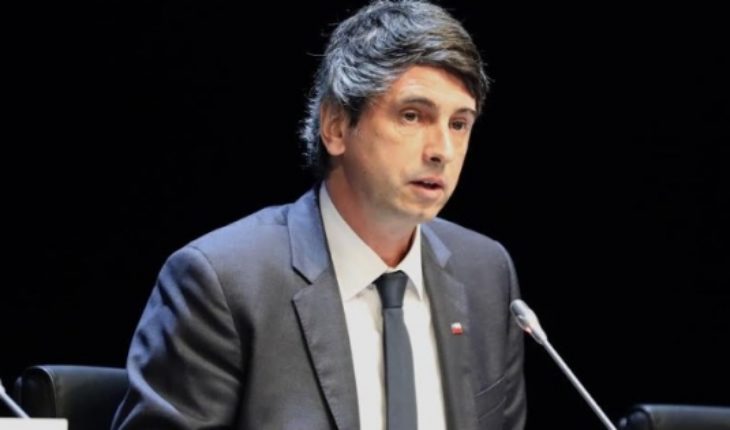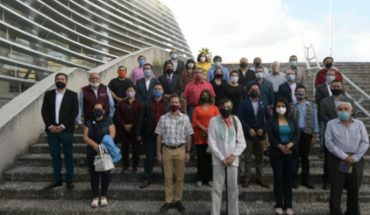This Friday in Monaco, the Minister of Science, Technology, Knowledge and Innovation, Andrés Couve, participated in the opening ceremony of the “Special Report on the Ocean and the Crinosphere in a Changing Climate” of the Panel United Nations (UNCCD).
In the company of the highest authorities of the IPCC and Prince of Monaco Albert II, Minister Couve stressed that “full consideration of the strong scientific evidence we have on climate change is the opportunity of our time to boost sustainable and comprehensive development. As an installation ministry we have decided to take a firm step to strongly welcome international evidence and generate political spaces for this evidence to be installed at the center of public discussion,” he said.
Together, he called for joint work by the scientific community and governments for climate action: “High-quality evidence has its true potential to reach people and contribute to decision-making through work systematically and pooled between scientists and public policy makers.”
This new IPCC report, involving more than 100 scientists from 30 countries, explores the impacts of climate change on ocean, coastal, polar, mountain glaciers and coastal communities around the world. In this regard, Minister Couve stressed that this report will be a key input for the climate change summit to be held in Chile in December, especially because of the importance of the ocean and ice in climate regulation.
“This instance is perfectly aligned with what we have dubbed ‘Blue COP’ by the colors of the ocean. COP25 will be a turning point, to improve the relationship between scientific evidence and climate action. Sharing information on the ocean and ice between different countries and establishing collaborative strategies to use this information is essential to generate and coordinate global efforts for climate action, with a focus on mitigation and adaptation to climate change. This is part of an urgent and inevitable challenge that knows no borders, as it makes clear the integration of climate and life on this planet,” the minister said.
In his speech, Minister Couve noted that the government seeks to enhance Antarctic research and promote technological solutions for monitoring and evaluation of marine protected areas: “We have protected 43% of our Marine Economic Zone Exclusive, a small feat if we consider chile’s area to be approximately 3.5 million square kilometers, three times the country’s land area, and we hope to begin to implement monitoring and evaluation of these protected areas, with the help of technology,” he said.
Regarding the Initiatives of the Ministry of Science for COP25, the Minister highlighted the coordination of the COP25 scientific committee, organized by its portfolio, which is systematizing local evidence on climate change and its effects: “Research, technology and innovation are key to climate change projections and the measures we are going to take to address it. The Ministry of Science will be the one to articulate and design the policies that will allow us to live up to this challenge,” he concluded.
translated from Spanish: Minister of Science says COP25 “will be a turning point to improve the relationship between scientific evidence and climate action”
September 21, 2019 |





